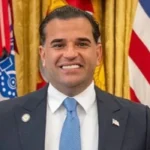French Culture Minister Rachida Dati is under investigation after prosecutors in Paris launched a probe into allegations that she failed to declare a sizeable collection of luxury jewelry, reportedly worth over €420,000. The investigation revolves around claims that Dati omitted 19 pieces of jewelry from her mandatory asset declaration to the High Authority for Transparency in Public Life (HATVP), a key oversight body that ensures transparency among public officials in France.
Background to the Investigation
Rachida Dati, a prominent figure in French politics and the current Culture Minister, has been in the public spotlight not only for her governmental role but also as a front-runner in the upcoming Paris mayoral race. The probe intensifies scrutiny around her financial disclosures, which are required of all cabinet members. Prosecutors’ investigation was triggered by a media report that detailed the alleged omission.
The alleged missing items include some of the most valuable pieces from her collection, raising questions about compliance with transparency laws. Critics argue that the failure to fully disclose such expensive assets undermines public trust, especially among officials entrusted with cultural and societal responsibilities.
Legal and Political Implications
The case against Dati centers on transparency laws designed to prevent conflicts of interest and illicit enrichment among public officials. By law, ministers must declare significant assets, including jewelry, to the HATVP. Failure to comply can lead to legal consequences ranging from fines to criminal charges.
An official statement from the Paris prosecutor’s office confirmed the opening of the investigation, reflecting the seriousness with which French authorities are treating the matter.
“All public officials are required to adhere to the highest standards of transparency, and any allegations of non-compliance will be thoroughly examined,”
a spokesperson said.
Political opponents have seized on the investigation as a means to question Dati’s integrity, especially as she vies for the influential position of Paris mayor. The controversy threatens to overshadow her campaign, which has focused on culture and urban development themes.
Dati’s Response and Political Standing
Rachida Dati has vehemently denied any wrongdoing and framed the allegations as politically motivated. In a public statement, she declared,
“I have always complied with the laws governing asset declarations, and I maintain full confidence in the judicial process to prove my integrity.”
While she acknowledges the probe, Dati insists that her record is transparent and that the accusations are part of a broader attempt to undermine her political ambitions.
Despite the cloud over her, Dati remains a well-known and influential political figure. She has previously served as Minister of Justice and is noted for her strong stance on law and order. Her supporters argue that the investigation is premature and urge restraint until facts are fully established.
Impact on the Paris Mayoral Race
The investigation comes at a critical moment as the mayoral campaign in Paris heats up. Dati, widely considered a front-runner, faces increasing pressure from rival candidates and the media alike. Analysts predict that the probe could complicate her electoral prospects if the inquiry extends and reveals substantive evidence.
Political commentators note that integrity issues often resonate strongly with urban voters in France, particularly in the capital. This ongoing case could thus shift voter sentiment, benefiting candidates perceived as untainted by controversy.
A political analyst observed,
“Rachida Dati’s image as a law-and-order figure may be tested by this investigation. Voters tend to scrutinize financial transparency closely, and any perception of impropriety can be damaging.”
Broader Context: Transparency in French Politics
This case echoes broader concerns in France about transparency and ethics in public office. Over recent years, French authorities have intensified efforts to enforce asset declarations and combat corruption. The HATVP plays a crucial role, scrutinizing the financial portfolios of ministers, parliamentarians, and other public officials to prevent opaque dealings.
The Dati probe highlights ongoing challenges in ensuring compliance and maintaining public confidence in governance. Authorities defend these measures as vital for democracy, emphasizing that no public figure is above scrutiny.
Historical Precedents and Public Reactions
Similar investigations into high-profile politicians in France have had mixed outcomes, with some leading to resignations or legal penalties, while others concluded without charges. Public opinion often fluctuates based on media coverage and the political climate surrounding each case.
Social media platforms and public discussions have been lively since news of the probe broke. Some commentators call for full transparency and accountability, while others warn against rushing to judgment before the investigation concludes.
One French citizen shared,
“It’s crucial that public officials are held accountable, but we must also respect due process and avoid sensationalism.”
The Role of HATVP and Transparency Mechanisms
The High Authority for Transparency in Public Life acts as the guardian of integrity among elected officials. It requires detailed declarations of assets and potential conflicts of interest to enhance accountability. This episode reiterates the challenges faced by such bodies in enforcing disclosure rules effectively.
Experts point out that jewelry and other luxury assets often pose difficulties for valuation and classification in asset declarations. This complicates oversight and can occasionally lead to omissions—whether intentional or accidental.
A legal expert explained,
“Asset declarations must be exhaustive, but the complexity of valuing luxury items introduces grey areas that can affect compliance. This underscores the need for clear guidelines and rigorous audits.”
Future Developments and Legal Process
The investigation into Rachida Dati is expected to continue over the coming months, with prosecutors examining documents, declarations, and potential explanations from her legal team. The outcome could range from dismissal if no evidence is found to formal charges or calls for political consequences if wrongdoing is confirmed.
Legal analysts emphasize the importance of a transparent and thorough process to uphold the principle of justice regardless of political status. The case will be closely watched as a benchmark for how France handles allegations against high-ranking officials in the cultural and political spheres.
The probe into French Culture Minister Rachida Dati’s undeclared jewelry collection casts a shadow over one of France’s prominent political figures at a pivotal time in her career. The investigation underscores the critical importance of transparency and accountability in public office and reflects broader societal demands for ethical governance.
As legal proceedings unfold, the public and political observers alike await clarity on whether these allegations will alter Dati’s political trajectory and what this means for the integrity frameworks that sustain French democracy.







